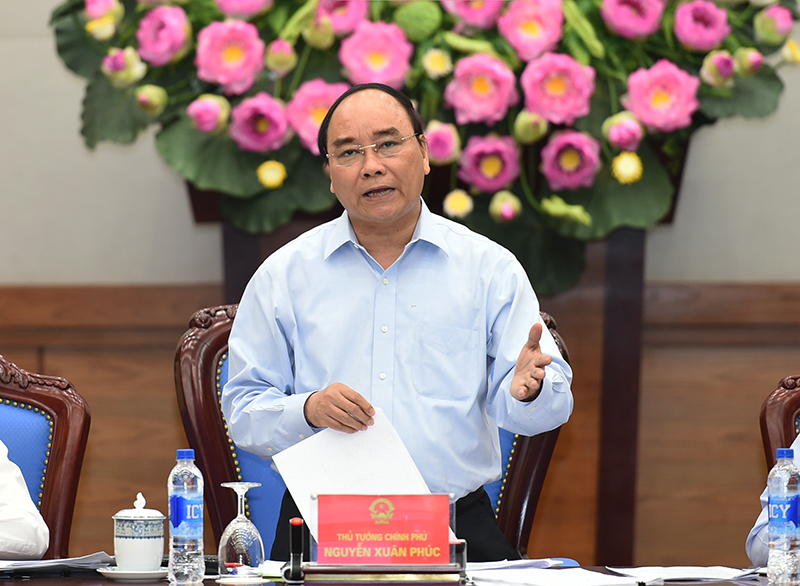 |
|
PM Nguyen Xuan Phuc chairs the video conference on food hygiene, April 27, 2016 - Photo: VGP/Quang Hieu
|
The PM made the point on April 27 in Ha Noi while chairing a video conference with Deputy PM Vu Duc Dam, and officials from 63 cities and provinces with a view to figuring out solutions to addressing weak management of food hygiene in recent time.
Many participating delegates attributed loose regulations on responsibilities of competent agencies; weak investigations; a lack of budget and certified technical equipment; light sanctions; and ineffective dissemination campaigns to rampant incidents of food poisoning and unsafe food products.
Minister Cao Duc Phat underscored the need to clarify the responsibilities of related ministries, sectors and localities.
The People’s Committees at all level are in charge of supervising food hygiene conditions at production units, street food, restaurants, and markets.
Addressing the event, PM Phuc stressed that unhygienic food not only affect Vietnamese's health but also the nation's prestige.
He called for taking drastic, comprehensive measures to resolve the problem to live up to people’s aspirations.
Besides local expenditure, the Government leader mentioned the necessity to promote social engagement in technical procurement.
Heaviest administrative penalties, even criminal charges will be imposed on infringements of food hygiene regulations.
The Government chief also asked for regular investigations and communication campaigns to raise public awareness of food safety.
Right after the video conference, the PM plans to issue a fresh directive to tighten State control of food hygiene.
In Vietnamese culture, many people buy their food at wet markets, where the origins of food sold, or what’s inside the food are hardly traced. They might be safe, but recent discoveries of unsafe food sold in wet markets and on streets worried wise consumers.
Many now try to grow their own vegetables, and get pork, beef and poultry products from trusted sources. Many avoid wet markets and turn to supermarkets or safe food shops – where food origin standards and food prices are often higher. But not everybody can afford that.
The revised Criminal Code has increased the penalties for violations of food hygiene regulations. Those caught using banned substances in the manufacture, processing or preservation of food will face up to 20 years in prison.
By Khanh Phuong